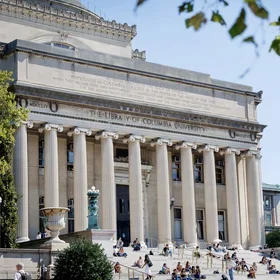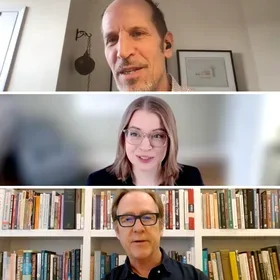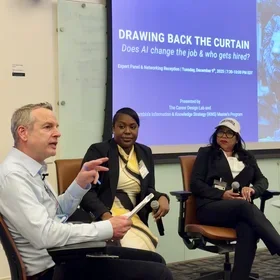"Modern Presidential Elections That Made History" was the second in the SPS Election 2020 Speaker Series, which convenes and connects the foremost minds around one of the most important issues in U.S. public life: political elections. Michael Nutter, David N. Dinkins Professor of Professional Practice in Urban and Public Affairs at Columbia SIPA and former mayor of Philadelphia, will be the distinguished speaker in the series on Tuesday, October 27. Visit sps.columbia.edu/vote to learn more.
On October 1st, the Columbia University School of Professional Studies hosted a lecture by University of Washington historian Margaret O'Mara, Ph.D. to discuss some of the most momentous elections in the history of the United States and draw some parallels with the upcoming presidential election on November 3rd.
The event was part of a larger initiative, called SPS Gets Out the Vote, designed to engage Columbia’s diverse student population in important political conversations by helping them cast their vote, understand their part in the electoral system and learn about the larger historical context of voting in the United States.
O’Mara, who specializes in political, economic and urban American history, discussed the revealing nature of elections and how each election reflects the larger historical context of the given time. Each election can serve as a bite-sized history lesson and often reflects repeating patterns that can be traced back to previous elections. The country has seen many elections that occurred both in times of economic upheaval and dire crisis — and the 2020 election is set to be a pivotal one, set as it is during a global health crisis.
[American people are] powerful, they go out and vote despite great obstacles placed in their way.”
Margaret O'Mara, Ph.D., Professor of History, University of Washington
To highlight the parallel themes between the 2020 election and others, O’Mara briefly discussed the historical context and significance of the elections in 1912, 1932, 1968 and 1992. A few key themes that resonate across each election year were sharp polarization, the rise of new media, protests and demonstrations and incumbents with unorthodox backgrounds affecting the course of the election.
With the large-scale economic shifts in the early 1900s, the adoption of radio for Roosevelt’s fireside chats in the 1930s, the protests surrounding the Vietnam War in the 1960s and even the business background of Ross Perot who ran against Clinton in 1992, O’Mara highlighted a series of commonalities between each of the historic elections and the upcoming election on November 3rd.
O’Mara concluded her keynote address on a positive note, reminding students and the larger SPS community that at the end of the day, American people are “powerful, they go out and vote despite great obstacles placed in their way.”
“We are in a moment of intense polarization. We are in a moment of sharp social, economic and geographic divisions that are shaping this election,” she said. And despite the fact that the upcoming election seems complex and frustrating, history proves that the United States has successfully survived elections in times of polarization and crisis in the past.


